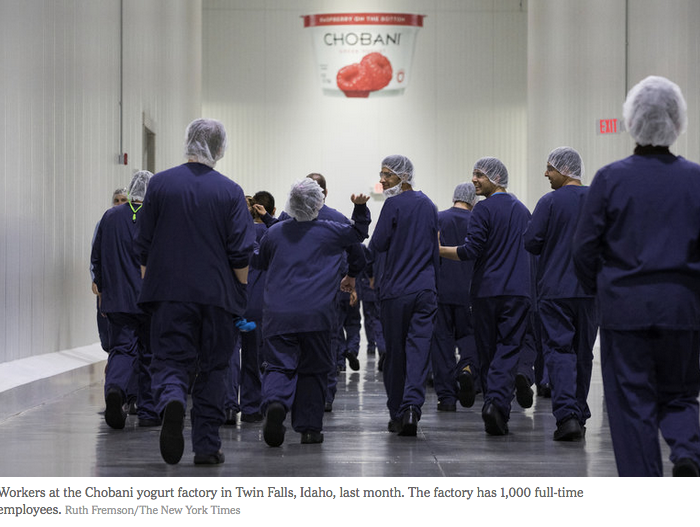Of nearly 2,000 rural counties in the United States, about 60 percent added jobs last year, while 40 percent contracted, according to federal figures. In such a brutal calculus, economists and local politicians said, little things add up fast: like being close enough to a big city, but not so close as to be crushed by the competition; having good access by air and highway for passengers and freight; and then having enough trained workers if and when new companies knock on the door.
What went right in southern Idaho started and ended with the rich volcanic soil. With irrigation, the black dirt was splendid for growing crops, from potatoes to alfalfa, that in turn fed the dairy cows that grew up in what became known as the Magic Valley. Idaho is the fourth-largest milk-producing state, after California, Wisconsin and New York, and three-quarters of that industry is clustered within 75 miles of downtown Twin Falls.
That’s why Chobani came. The company now buys up to 60 tanker trucks of milk a day from local farmers — 8,000 gallons of milk per truck — to keep its operation going. Clif Bar, which uses mostly organic ingredients, just reached an agreement to buy its first supply of locally grown organic oats.




